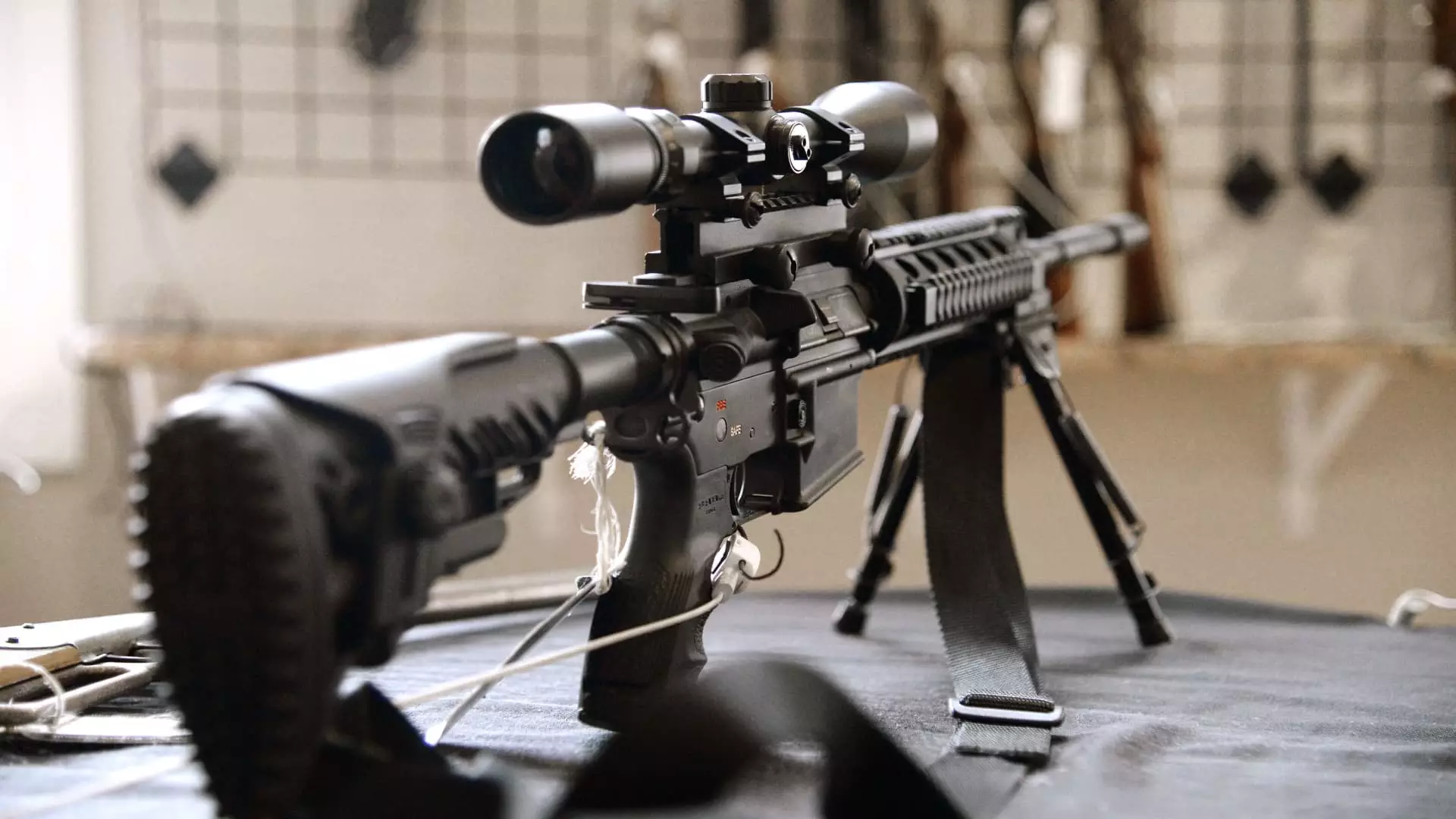In an era where the specter of gun violence looms large over America, Rhode Island’s Democratic-controlled state House has taken a significant stride by advancing a bill to ban the sale and manufacturing of numerous semiautomatic rifles, often labeled as assault weapons. This courageous action represents not only a legislative shift but a moral imperative — an acknowledgment that the safety of citizens must take precedence over the unfettered rights of gun ownership. However, as the legislation now awaits approval from Democratic Governor Dan McKee, it reveals both potential and limits in the fight for public safety.
The essence of the proposal is to block the sale and manufacture of assault-style weapons within the state, drawing Rhode Island closer to its neighbors who have similarly recognized the dangers posed by these high-powered firearms. The legislators supporting this law, including Democratic Rep. Rebecca Kislak, view this ban as a critical yet incremental measure. It’s a brave assertion in a country grappling with the aftermath of mass shootings, yet, it still lacks the thorough comprehensiveness necessary to be truly effective.
The Dichotomy of Support and Opposition
Supporters of the ban rightly point to the staggering toll that assault weapons have exacted through heinous acts of violence. However, critics, including some Republican lawmakers and even certain gun control advocates, argue that simply prohibiting the sale of these weapons is ultimately insufficient. Their contention is that this legislation primarily casts its net over law-abiding citizens while failing to address underlying criminal behavior. Republican Sen. Thomas Paolino’s stance that the bill merely burdens responsible gun owners is a legitimate critique that the legislation must contend with.
Yet, opposition comes from more than just conservatives; even David Hogg, a prominent gun control advocate and Parkland shooting survivor, believes that the proposed ban is “the weakest assault weapons ban in the country.” The discontent reverberates with a sense of urgency for more robust action — one that encapsulates both sale and possession bans to truly enhance public safety. Hogg’s assertion that Rhode Islanders deserve much more underscores a critical point; half-measures will not quell the epidemic of gun violence.
A Complex Legal Landscape
As the narrative unfolds, it’s imperative to consider the legal ramifications of assault weapon bans. Federal laws already complicate the situation, disallowing individuals from crossing state lines to purchase firearms banned in their home states. With nine states and Washington D.C. implementing similar bans, the legal chess game intensifies. Critics claim that such legislation could eventually face challenges, leading to potentially destabilizing Supreme Court decisions. The conservative-majority court has already shown a propensity towards favoring gun rights, complicating the national landscape regarding this contentious issue.
The fact that only Washington state has enacted a law akin to Rhode Island’s current proposal sheds light on a broader, troubling hesitation across parts of America to confront the reality of assault weapon proliferation. Despite the Democratic majority, a palpable apprehension persists among state lawmakers — one characterized by fears of legal fallout and a reluctance to tread into a contentious battle over Second Amendment rights.
Public Safety vs. Personal Freedom
The ongoing discourse about gun control in Rhode Island, as well as nationally, is an urgent reflection of a more profound societal dispute: the balance between public safety and personal freedoms. Advocates like Elisabeth Ryan from Everytown for Gun Safety passionately argue that any ban, no matter how limited, is an indispensable step toward mitigating risks associated with assault weapons. Yet the criticism that the proposed ban does not go far enough is both fair and critical.
The outright rejection of comprehensive measures reflects a bipartisan fail that continues to endanger lives. It is essential for Rhode Islanders and, by extension, Americans to advocate for legislation that transcends the mere outlines of regulation. A public safety framework should prioritize the protection of citizens above all else, fostering an environment in which responsible gun ownership coexists with reasonable restrictions, unlike the watered-down proposals currently being entertained.
The time is ripe for a far-reaching dialogue that transcends party lines. Armed with stories of tragedy and resilience, Rhode Islanders have an opportunity to rally behind meaningful change that genuinely enhances safety — for their families and community. It takes courage to confront the complex tensions of liberty and security, yet doing so is the only path toward an enduring solution.

Leave a Reply